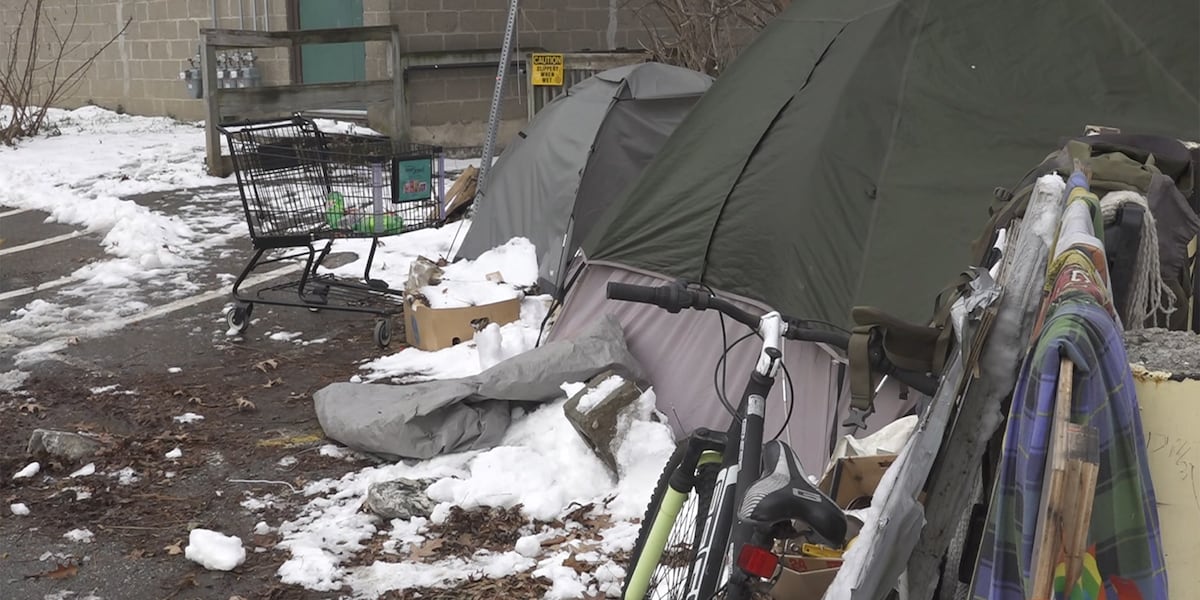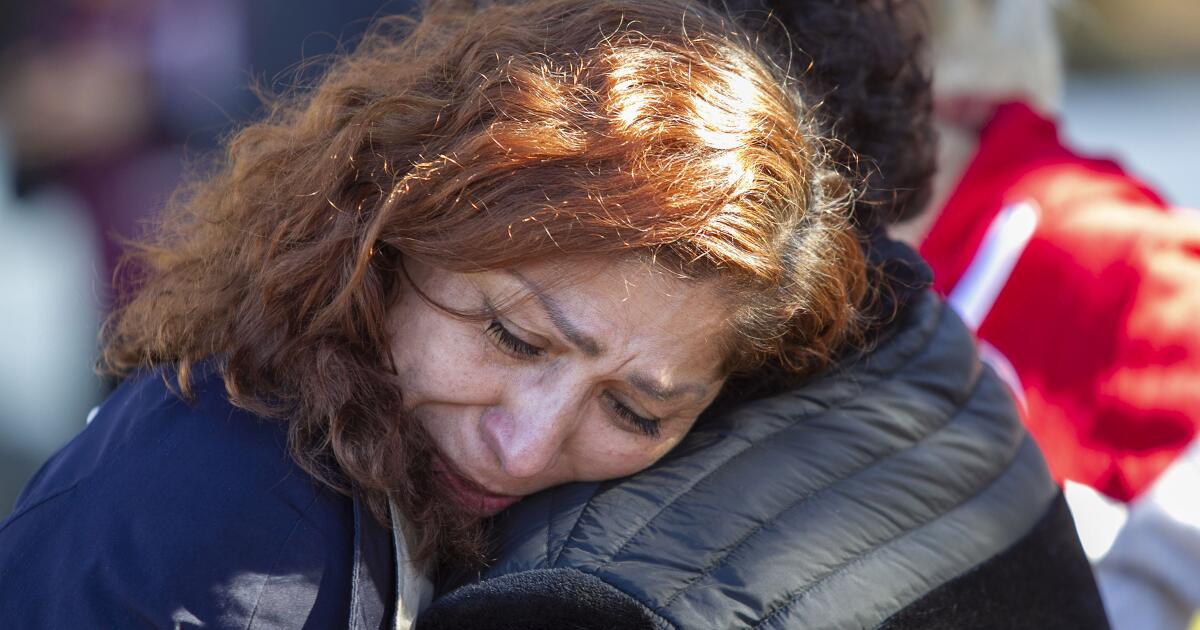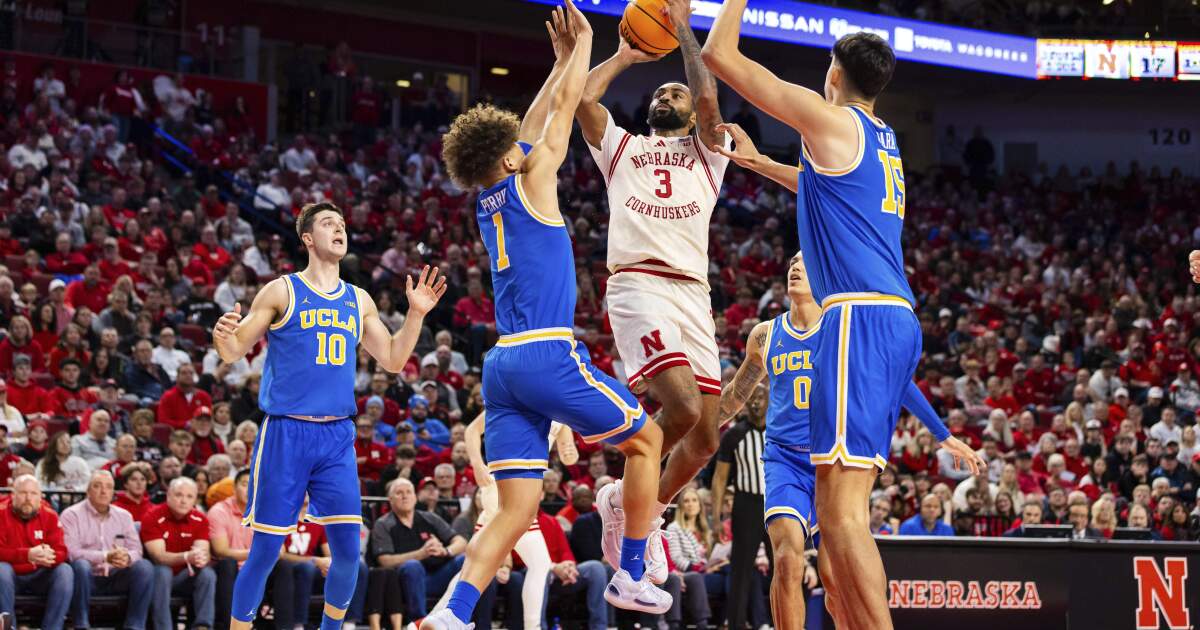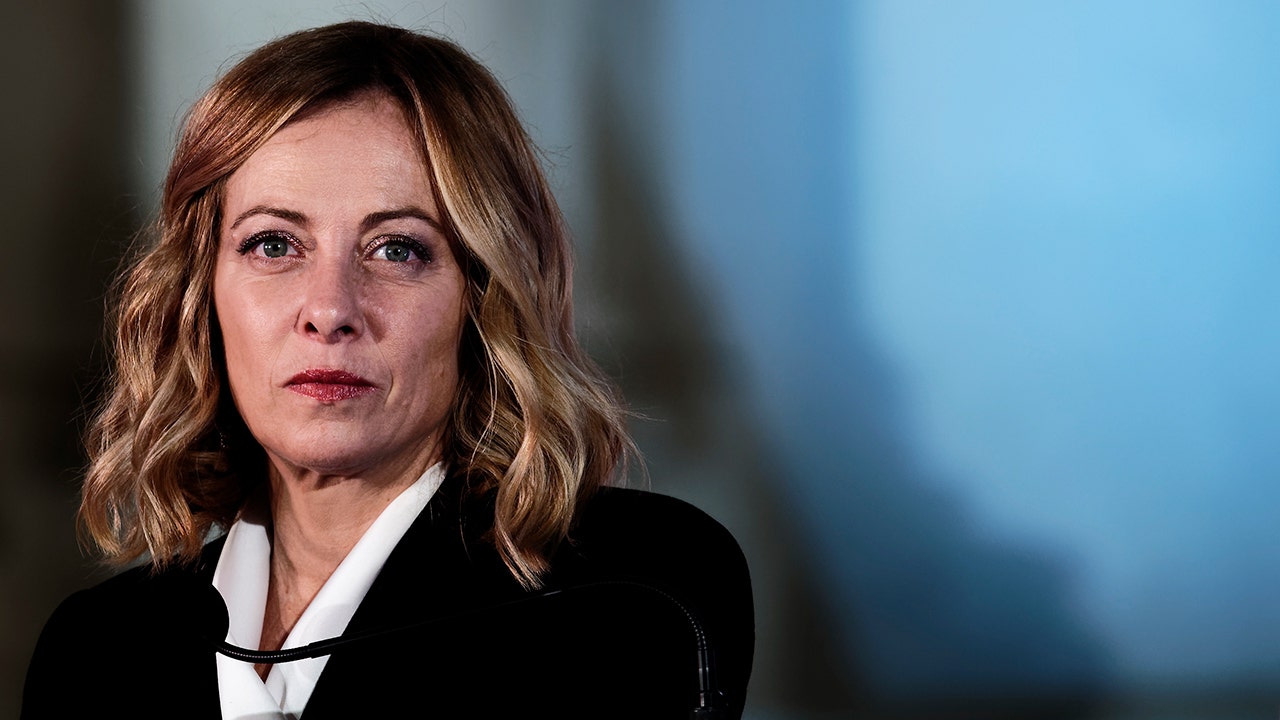World
At least 895,000 people are homeless in Europe, new report says
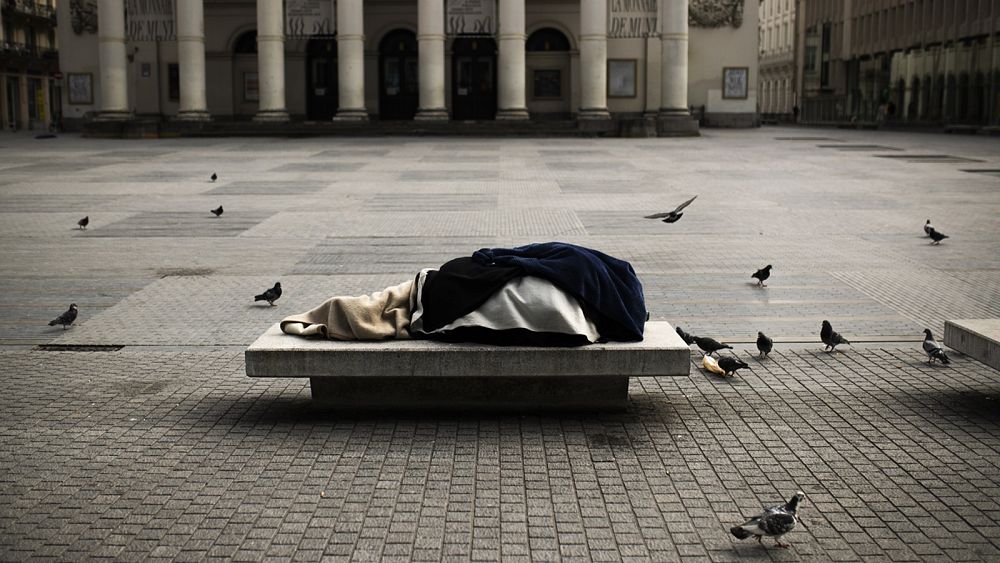
At least 895,000 people in Europe were homeless last year, a new report has found, shedding light on a trend made worse by Russia’s war on Ukraine.
Germany registered 84,500 rough sleepers in 2022 while Spain recorded more than 28,500.
The findings were compiled by the European Federation of National Organisations Working with the Homeless (FEANTSA) and the Fondation Abbé Pierre in their new report titled “Poor Housing in Europe,” released on Tuesday.
The study raises the alarm about how unfit housing conditions, such as overcrowding, mould, dampness, exposure to pollution and poor sanitation, affect the poorest segments of the population, exacerbating poverty and perpetuating social exclusion.
“Every night in Europe, a population comparable to that of a city like Marseille or Turin is homeless,” the organisations said in a joint editorial. “Turning the tide will require unprecedented political efforts and bold structural measures.”
The lack of comprehensive data collected through a common methodology makes it difficult to get an accurate picture of homelessness in the European Union, the organisations warn. Their estimate of 895,000 homeless people was obtained using data made available by national and local authorities.
“It is an increase of 30% compared to the last time that we did this estimate in 2018, and in the 10 years leading up to that it had already increased by 70%. So this is a structurally growing problem in the European Union,” Ruth Owen, FEANTSA’s deputy director, told Euronews in an interview.
The report gives a few snapshots of some of the main cities in Europe. Barcelona, in Spain, registered 1,063 rough sleepers in 2022, representing a 19% increase in just one year. In the French capital, Paris, 69% of the city’s 2,598 homeless people have been living in that condition for more than one year.
Homelessness does not exclusively define people who lack a regular place to sleep but also those who are forced to resort to emergency accommodation. An example of worsening conditions was seen in Dublin, Ireland, where 8,376 people lived in such public services – a 31% increase rate in one year.
The deteriorating situation across the continent is being blamed on Russia’s decision to attempt a full-scale invasion of Ukraine and its multiple ripple effects, which include record-breaking energy prices and persistently high inflation.
The economic repercussions, Owen explained, was felt by both homeless people and the social services that assist them on a daily basis.
“The fact that the cost-of-living crisis, that inflation was concentrated on essential things, like energy and food, meant that the poorest households were hit the hardest,” Owen said. “Also, the services working to help homeless people were very strongly hit by inflation, and especially by the increase in energy prices”.
A new platform’s promises
Homelessness is a problem that precedes the Kremlin’s revisionist war and has become deeply entrenched in the majority of European countries, which, despite being among the world’s wealthiest, are unable to effectively tackle the problem.
Upon the initiative of Portugal’s socialist government, the European Union created the European Platform on Combating Homelessness in June 2021 with the goal of eradicating the phenomenon by 2030. The platform has put in place a working group to mobilise funds provided by the European Commission and the Council of Europe and support policy programmes for social inclusivity.
Owen believes the platform helped make homelessness a social policy priority at the EU level but that concrete results are yet to materialise.
“We need to see the European Union turn this new platform, which is a great new step, into a real forum for progress, working on things like better data on homelessness and mobilising EU funding to tackle homelessness,” Owen said.
“A lot can be achieved in terms of policy exchange and learning what works from countries that have been more successful in tackling homelessness.”
Things are moving slowly, though.
According to the report, only three of 27 EU member states have made tangible progress in tackling homelessness and achieved a “slight drop” in the number of rough sleepers: Finland, Denmark and Austria.
These countries apply a so-called “Housing First” strategy, which consists of providing housing as a first step before supporting with access to health and education services.
Next year, the European Platform on Combating Homelessness, currently chaired by former Belgian Prime Minister Yves Leterme, is set to launch a series of activities in several cities across Europe to improve the quality of research, including a pilot project for counting homeless people based on a common methodology.
Eurostat, the EU’s statistical office, will also start collecting data.

World
Scholz condemns Musk's support for far-right AfD
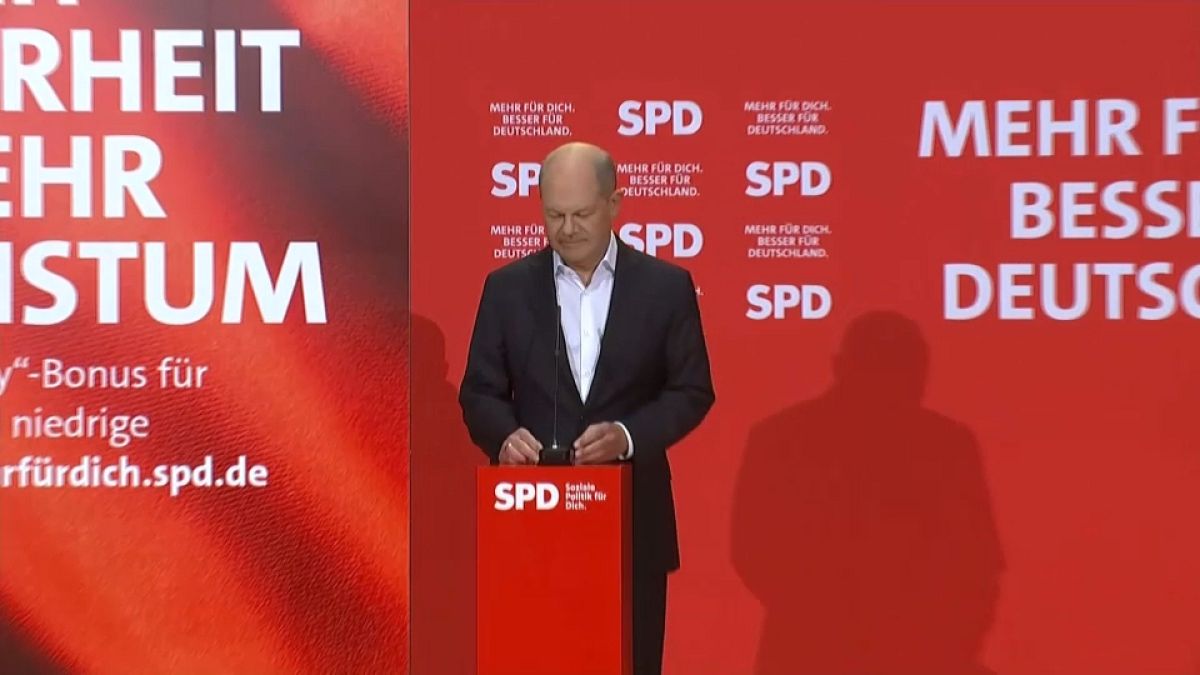
German government officials previously accused Musk of election interference as his endorsement comes weeks ahead of the country’s general elections in February.
German Chancellor Olaf Scholz condemned Elon Musk’s endorsement of Germany’s far-right Alternative for Germany (AfD) party ahead of the country’s upcoming elections.
Musk has repeatedly backed AfD on social media platform X, which he owns. Two weeks ago, the US billionaire claimed “only the AfD can save Germany.” Musk also endorsed the party in an op-ed he wrote for the German newspaper Welt am Sonntag at the end of December.
German government officials last week accused Musk of election interference, as his comments come weeks before Germany is set to hold its elections on 23 February.
Scholz has previously ignored Musk’s personal attacks, such as when he called the chancellor an “incompetent fool” and urged him to “resign immediately” following the Magdeburg attack on 20 December, but expressed concern as the tech mogul has seemingly tried to get involved in the general election.
“The crucial thing is that Mr. Musk has supported a partly right-wing extremist party and, as you can see, is not only acting in that direction in this country. And that is something we not only disagree with, I completely reject that,” Sholz said at a press conference on Sunday.
The German chancellor added that it was not the first time the SDP, his own party, had to defend themselves against “rich entrepreneurs”. What is new, however, is the role of media and algorithms in shaping popular opinions.
“What is certainly new is the fact that it is a global media entrepreneur. What is certainly new is the fact that with algorithms, it is not certain how opinion is formed, which is organised by the structures of these systems.”
Scholz also rejected reports claiming he was planning a meeting with Russian President Putin.
“That is a false claim. You can’t do that. It is deeply indecent. There is no evidence for this. No one can report anything that no one has even thought about. And therefore, I think even upright people should be outraged when false allegations are made.”
World
Exclusive: New US ethics czar starts vetting incoming Trump officials

World
Zelenskyy says Trump could be ‘decisive’ in bringing an end to the war
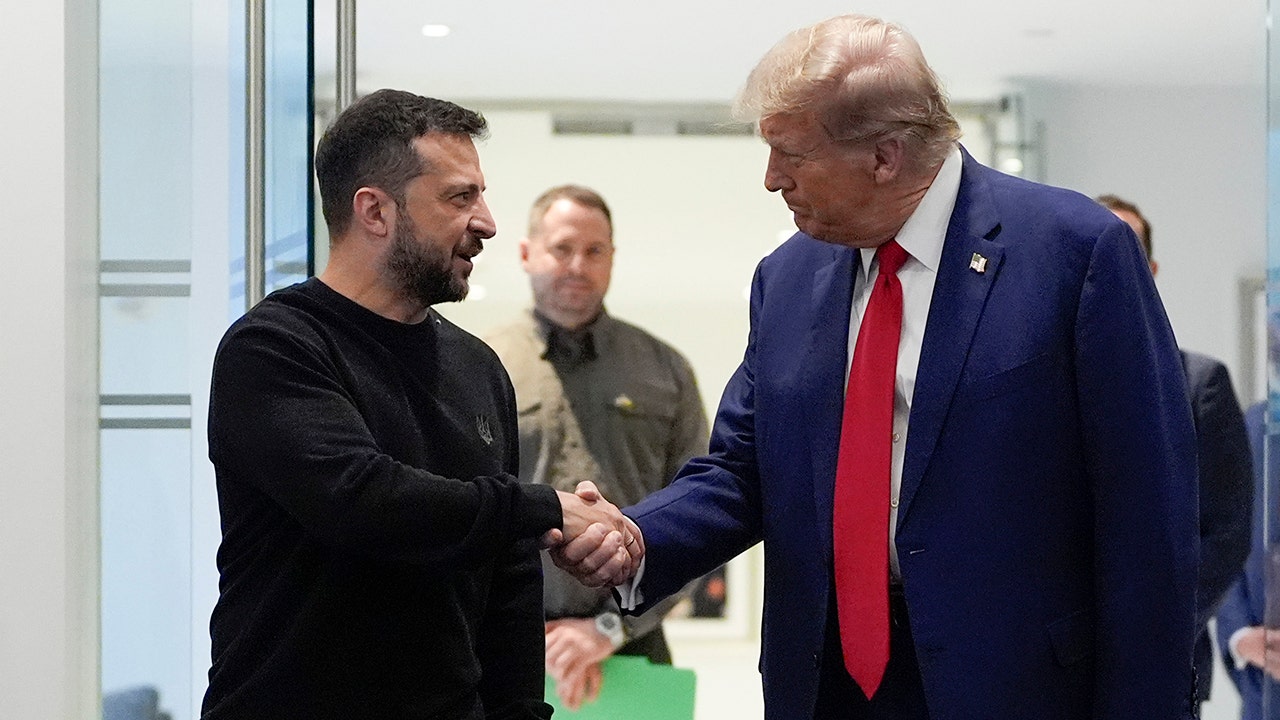
Ukrainian President Volodymyr Zelenskyy struck a hopeful tone on Thursday during a televised interview and said he believes President-elect Donald Trump could be “decisive” in ending the war as Kyiv stares down the third anniversary of Russia’s invasion.
“Trump can be decisive. For us, this is the most important thing,” Zelenskyy said according to a Reuters report. “His qualities are indeed there.
“He can be decisive in this war. He is capable of stopping [Russian President Vladimir] Putin or, to put it more fairly, help us stop Putin,” he added. “He is able to do this.”
Then-former President Donald Trump, right, meets with Ukrainian President Volodymyr Zelenskyy at Trump Tower on Friday, Sept. 27, 2024 in New York City. (AP Photo/Julia Demaree Nikhinson)
UKRAINE: HOW THE WAR SHIFTED IN 2024
Zelenskyy said Trump assured him that Kyiv would be among his first presidential visits following his inauguration later this month as Ukraine looks to stabilize the front lines.
Stopping Russian advances early in the new year is a top priority for Zelenskyy, who also reportedly claimed that Putin feared negotiations as it would be seen by the Kremlin chief as tantamount to a Russian defeat.
Despite nearly three full years of war, Russia has been unable to achieve not only its initial war aims, but even Putin’s amended plans, which he announced last year when he said his main goal is now to take all the Donbas – a region in eastern Ukraine encompassing much of the Donetsk and Luhansk regions.
However, it is not only Putin who views potential peace negotiations with apparent trepidation.
Zelenskyy has said he welcomes peace talks, but he has also made it clear that any negotiations on ending the war will only be accepted if Ukraine is granted certain security guarantees – like the possibility of joining NATO.
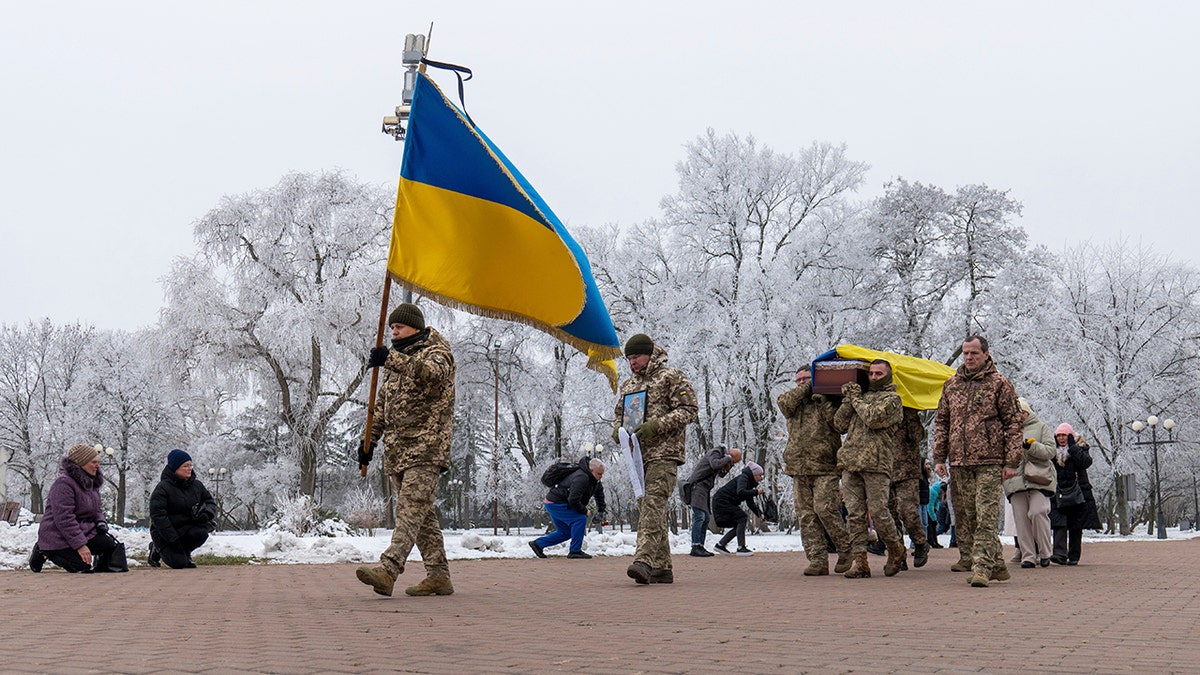
Fellow soldiers carry the coffin of leading actor of the music and drama theatre Petro Velykiy, 48, who was killed in a battle with the Russian troops in Russia’s Kursk region, during a farewell ceremony in Chernyhiv, Ukraine, on Wednesday, Nov. 27, 2024. (AP Photo/Dan Bashakov)
RUSSIAN FOREIGN MINISTER BLASTS UKRAINE PEACE DEAL REPORTEDLY FLOATED BY TRUMP’S TEAM: ‘NOT HAPPY’
“Naturally, any security guarantees without the United States are weak security guarantees for Ukraine,” he said, though he added that Washington must take into account Kyiv’s future security.
“It cannot be otherwise,” he added. “We are Ukraine, and it’s our independence, our land and our future.”
Putin, on the other hand, has said he will not accept any cease-fire negotiations that do not include guarantees that bar Kyiv from joining the 32-member body, which under Article 5 of the alliance’s treaty says an attack on one member will trigger an attack from all NATO nations and would effectively ensure a united strike on Moscow should it once again target Ukraine.
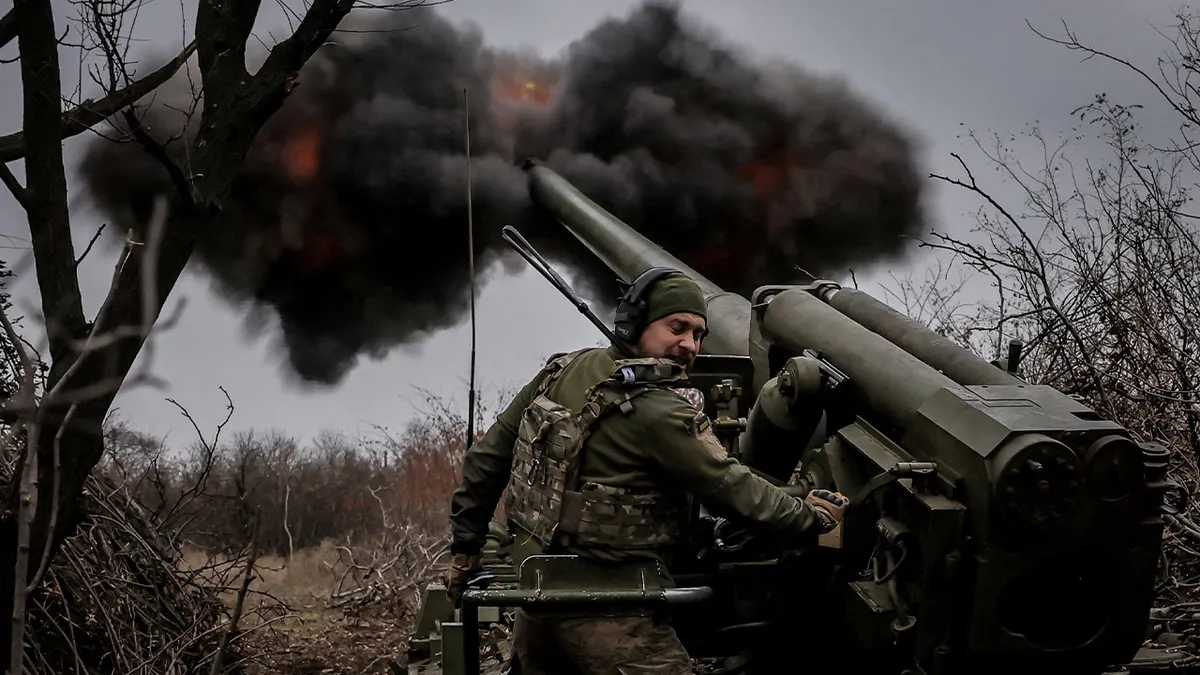
A serviceman of the 24th Mechanized Brigade, named after King Danylo of the Ukrainian Armed Forces, fires a 2s5 “Hyacinth-s” self-propelled howitzer towards Russian troops at a front line, amid Russia’s attack on Ukraine, near the town of Chasiv Yar in Donetsk region, Ukraine, on Nov. 18, 2024. (Oleg Petrasiuk/Press Service of the 24th King Danylo Separate Mechanized Brigade of the Ukrainian Armed Forces/Handout via REUTERS )
Zelenskyy, who has led the country since 2019, was also asked if he would consider re-running for the presidency.
The Ukrainian president reiterated that the nation cannot hold elections while in a state of war under the nation’s existing constitution but said he may consider it once the conflict has ended.
“I don’t know how this war will end,” he said. “If I can do more than I am able, then I will probably view such a decision [seeking re-election] more positively. For now, this is not an objective for me.”
Fox News Digital could not immediately reach the Trump transition team for comment.
-

 Health1 week ago
Health1 week agoNew Year life lessons from country star: 'Never forget where you came from'
-
/cdn.vox-cdn.com/uploads/chorus_asset/file/24982514/Quest_3_dock.jpg)
/cdn.vox-cdn.com/uploads/chorus_asset/file/24982514/Quest_3_dock.jpg) Technology1 week ago
Technology1 week agoMeta’s ‘software update issue’ has been breaking Quest headsets for weeks
-

 Business5 days ago
Business5 days agoThese are the top 7 issues facing the struggling restaurant industry in 2025
-

 Politics1 week ago
Politics1 week ago'Politics is bad for business.' Why Disney's Bob Iger is trying to avoid hot buttons
-

 Culture5 days ago
Culture5 days agoThe 25 worst losses in college football history, including Baylor’s 2024 entry at Colorado
-

 Sports4 days ago
Sports4 days agoThe top out-of-contract players available as free transfers: Kimmich, De Bruyne, Van Dijk…
-

 Politics3 days ago
Politics3 days agoNew Orleans attacker had 'remote detonator' for explosives in French Quarter, Biden says
-

 Politics3 days ago
Politics3 days agoCarter's judicial picks reshaped the federal bench across the country


